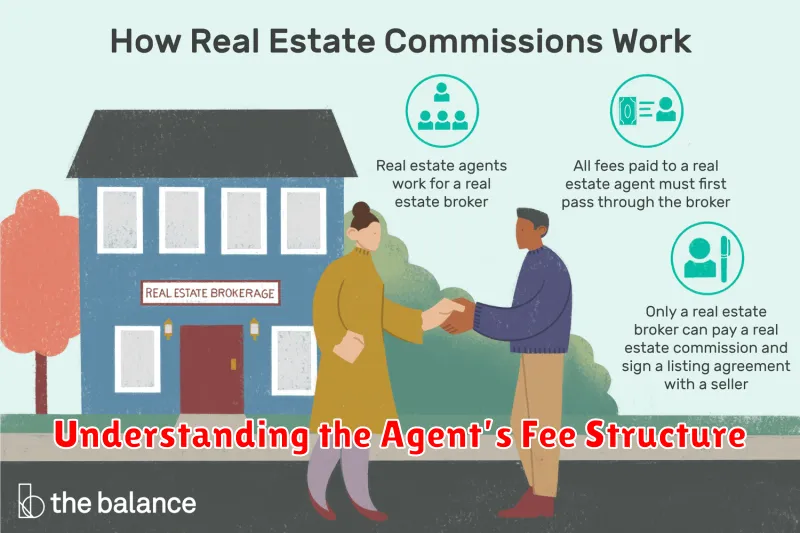Choosing a reliable real estate agent is a crucial step in any real estate transaction, whether you’re buying or selling a property. The right agent can make the process significantly smoother, while the wrong one can lead to frustration and potentially costly mistakes. This article will guide you through the essential steps to finding a real estate agent you can trust to represent your best interests and navigate the complexities of the real estate market effectively.
Finding the perfect real estate agent for your needs requires careful consideration. From understanding agent credentials and market expertise to evaluating their communication style and negotiation skills, there are several key factors to consider. This guide will equip you with the knowledge and tools necessary to confidently select a reliable real estate agent who will help you achieve your real estate goals, whether it be buying your dream home or selling your property for the best possible price.
Why a Good Agent Matters
In many situations, having a skilled agent can be the difference between success and failure. Whether you’re navigating the complexities of real estate, seeking lucrative entertainment deals, or pursuing other professional opportunities, a competent agent brings valuable expertise and resources to the table. They can effectively negotiate on your behalf, leveraging their industry knowledge and connections to secure the best possible outcome. A good agent acts as your advocate, protecting your interests and guiding you through the process.
Agents offer more than just negotiation skills. They provide invaluable market insights, helping you understand current trends and make informed decisions. A good agent will conduct thorough research and analysis, presenting you with a clear picture of your options. They can also handle time-consuming tasks such as scheduling appointments, managing paperwork, and coordinating communications, freeing up your time to focus on other priorities. This level of support can significantly reduce stress and streamline the entire process.
Ultimately, a strong agent-client relationship is built on trust and communication. Choosing an agent who understands your goals, communicates effectively, and operates with integrity is crucial. Their dedication to your success is a key factor in achieving your desired results, whether it’s selling a property, landing a dream role, or achieving other professional milestones.
Qualities to Look for in an Agent
When selecting an agent, prioritize experience and expertise. A seasoned agent possesses valuable market knowledge and a proven track record. Look for an agent specializing in your specific needs, whether it’s residential, commercial, or a niche market. Strong communication skills are crucial for effective negotiation and keeping you informed throughout the process. Verify their licensing and credentials to ensure they adhere to professional standards.
Consider an agent’s market knowledge, including pricing trends, neighborhood dynamics, and competitive inventory. Their ability to accurately assess property values and craft effective negotiation strategies is essential. A strong network of contacts, including lenders, inspectors, and attorneys, can streamline the transaction process. Seek testimonials and references to gauge their past performance and client satisfaction.
Finally, assess their responsiveness and availability. A reliable agent communicates promptly and is readily accessible to address your questions and concerns. Their commitment to client service should be evident in their proactive approach and dedication to achieving your goals. Choosing an agent who is a good fit for your personality and communication style will contribute to a smoother, more positive experience.
Where to Find Trustworthy Agents

Locating reputable agents requires diligent research and careful consideration. Begin by leveraging online resources such as professional association directories and review platforms. Look for agents with certifications and credentials relevant to your needs, demonstrating their commitment to professional standards. Additionally, seek out agents with a strong track record and positive client testimonials. This initial online investigation can significantly narrow your search to a pool of potential candidates.
Referrals from trusted sources are invaluable in the search process. Reach out to your personal and professional network for recommendations. Discuss your specific requirements and inquire about their experiences. Word-of-mouth referrals provide firsthand insights into an agent’s reliability, communication style, and overall effectiveness. Don’t hesitate to ask pointed questions about their interactions and satisfaction levels.
Finally, conduct thorough interviews with prospective agents. This crucial step allows you to assess their expertise, understand their approach, and gauge their compatibility with your goals. Prepare a list of questions beforehand, addressing topics such as their experience in your area of need, their fee structure, and their communication practices. A face-to-face meeting (or virtual equivalent) provides an opportunity to build rapport and establish clear expectations. By taking a proactive and informed approach, you can significantly increase your chances of finding a trustworthy and competent agent.
Questions to Ask Before Hiring

Hiring the right candidate is crucial for any organization’s success. Before making a hiring decision, take the time to ask key questions that will help you assess a candidate’s suitability. Focus on questions that delve into their experience, skills, and cultural fit. For example, inquire about specific examples of how they handled challenging situations in previous roles, or how they approach problem-solving and teamwork. Understanding a candidate’s work ethic and communication style is also essential for a successful hire.
Beyond technical skills, it’s important to assess a candidate’s soft skills and how they align with your company’s values. Ask questions about their leadership style, conflict resolution abilities, and how they handle feedback. Inquiring about their career aspirations and long-term goals can provide insight into their motivation and whether they are a good fit for your organization’s growth trajectory. Finally, be sure to provide the candidate with an opportunity to ask questions about the role, the team, and the company culture. Their questions can often reveal valuable information about their priorities and how engaged they are in the process.
Prepare a structured interview process that includes a consistent set of questions for all candidates. This ensures a fair and objective evaluation process. Always verify the information provided by the candidate by checking references and confirming credentials. Taking the time to thoroughly vet candidates will help you avoid costly hiring mistakes and ensure that you bring on board individuals who can contribute to your organization’s long-term success. Don’t hesitate to involve other team members in the interview process to gain diverse perspectives and ensure a well-rounded assessment of the candidate’s suitability.
Understanding the Agent’s Fee Structure

Agent fees are compensation paid to an agent for their services in facilitating a transaction or managing affairs on behalf of a client. These fees can vary significantly based on the type of agent (e.g., real estate, talent, insurance), the specific services provided, and the terms of the agreement between the agent and the client. Understanding the fee structure upfront is crucial to avoid any surprises and ensure a transparent working relationship.
Common fee structures include commission-based fees (a percentage of the transaction value), flat fees (a fixed amount for specific services), hourly rates, or a combination of these. Retainer fees, an upfront payment securing the agent’s services for a certain period, are also common in some industries. The fee structure should be clearly outlined in a written agreement, detailing how the fee is calculated, when it’s due, and any other relevant payment terms.
Before engaging an agent, it’s important to compare fee structures from different agents, negotiate terms if possible, and ensure you fully understand what services are covered by the fee. Don’t hesitate to ask questions and clarify any uncertainties regarding the fee structure to establish a clear and mutually beneficial agreement.
Red Flags to Avoid
Recognizing red flags is crucial in various aspects of life, from personal relationships to business dealings. These warning signs indicate potential problems or dangers that warrant further investigation or a change in course. Ignoring them can lead to negative consequences, so paying attention to your intuition and the subtle cues around you is essential. Some common red flags to watch for include inconsistent behavior, evasiveness, a lack of transparency, and controlling tendencies. Recognizing these red flags early can save you from future heartache and hardship.
In the professional realm, red flags might manifest as unrealistic promises, missed deadlines, or a lack of clear communication. Due diligence is key when evaluating a potential business partner or investment opportunity. Thoroughly research the individual or company’s background, track record, and financial stability. Don’t be afraid to ask tough questions and seek independent verification of their claims. A cautious approach can help you avoid costly mistakes and protect your interests.
Ultimately, trusting your gut instinct is paramount. If something feels off or too good to be true, it probably is. Don’t dismiss your intuition; it’s often based on subconscious observations and experiences that your conscious mind hasn’t yet processed. By heeding red flags and proceeding with caution, you can make more informed decisions and navigate life’s complexities with greater confidence and security.
How to Build a Productive Relationship
Building a productive relationship, whether personal or professional, requires open communication. This means clearly expressing your needs and expectations, actively listening to the other person, and providing constructive feedback. It also involves being willing to compromise and finding solutions that benefit both parties. Honest and respectful communication lays the foundation for trust and mutual understanding.
Shared goals and values are another crucial element. When you and the other person are working towards a common purpose, it creates a sense of unity and collaboration. Understanding each other’s values helps you appreciate different perspectives and navigate disagreements effectively. Defined goals, whether in a business partnership or a romantic relationship, provide direction and motivation for working together productively.
Finally, mutual respect and support are essential. This means valuing the other person’s opinions, recognizing their contributions, and offering encouragement. It also involves setting healthy boundaries and respecting each other’s individuality. A strong foundation of respect and support creates a safe and positive environment where both individuals can thrive and achieve shared success.

